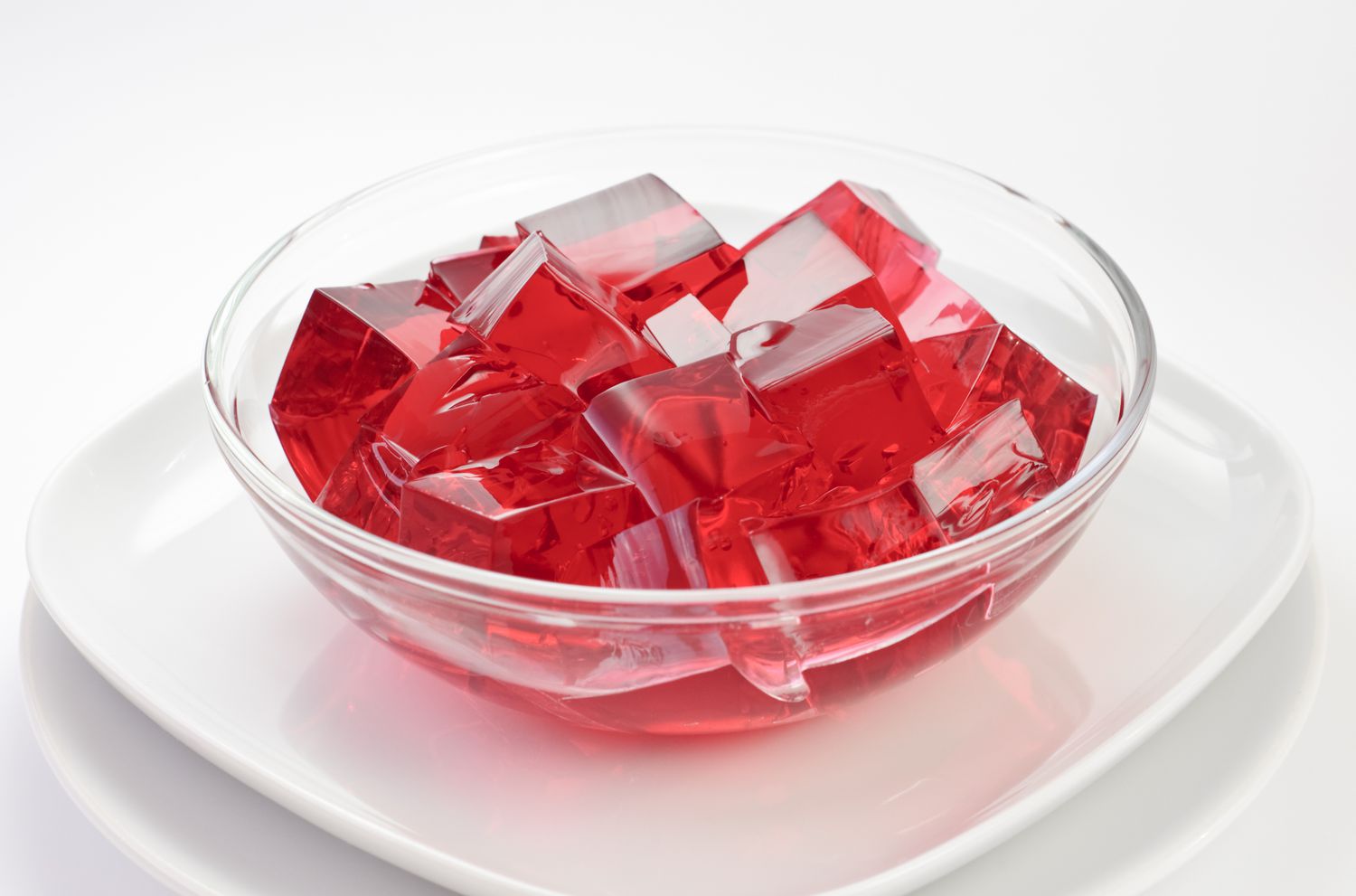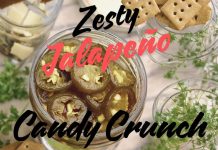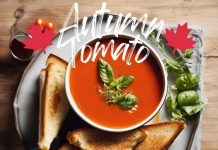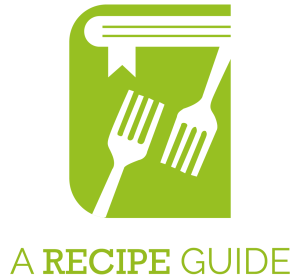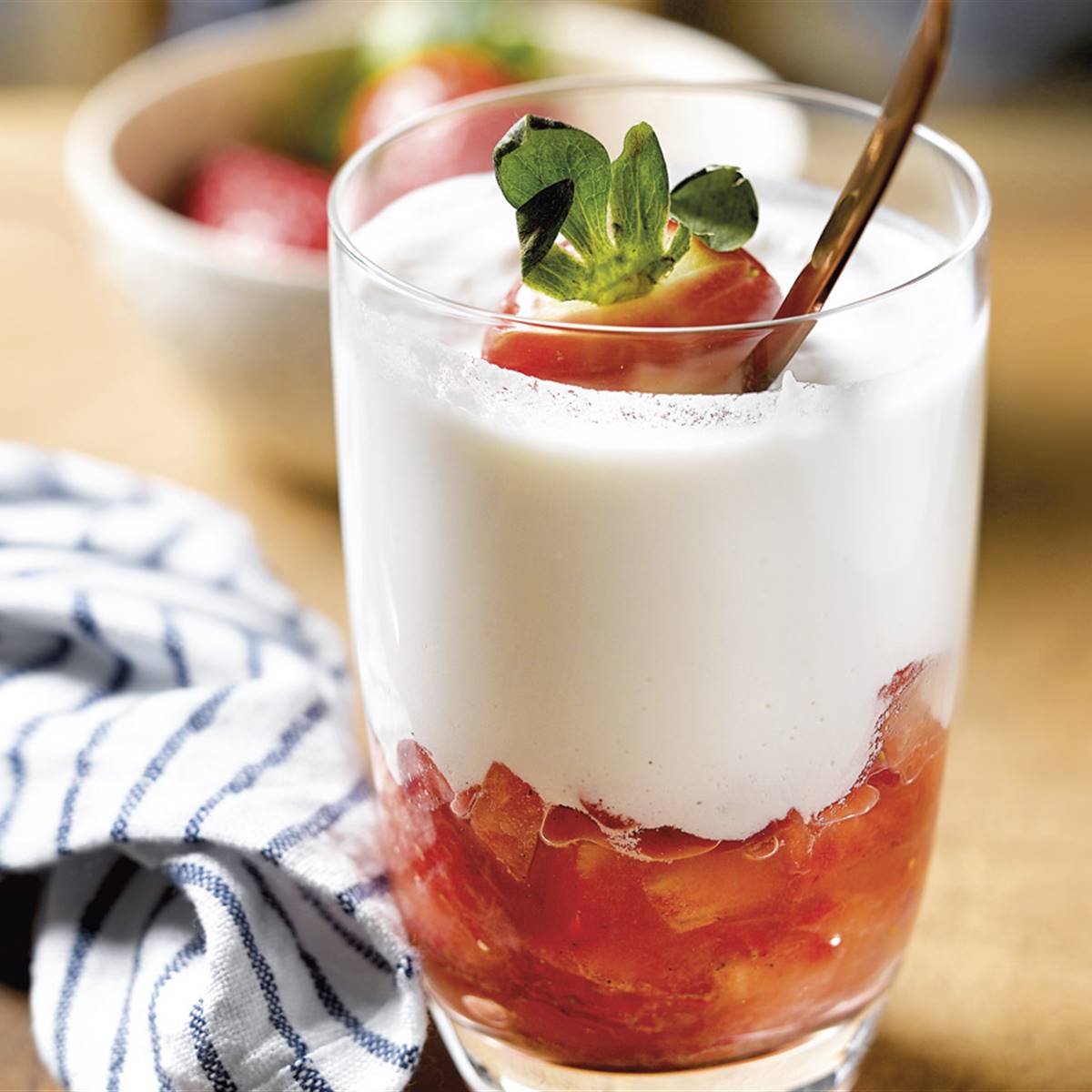Gelatin is a protein that is obtained from animals and serves as a thickener in various products. There are vegan alternatives that can fulfill the same functions.
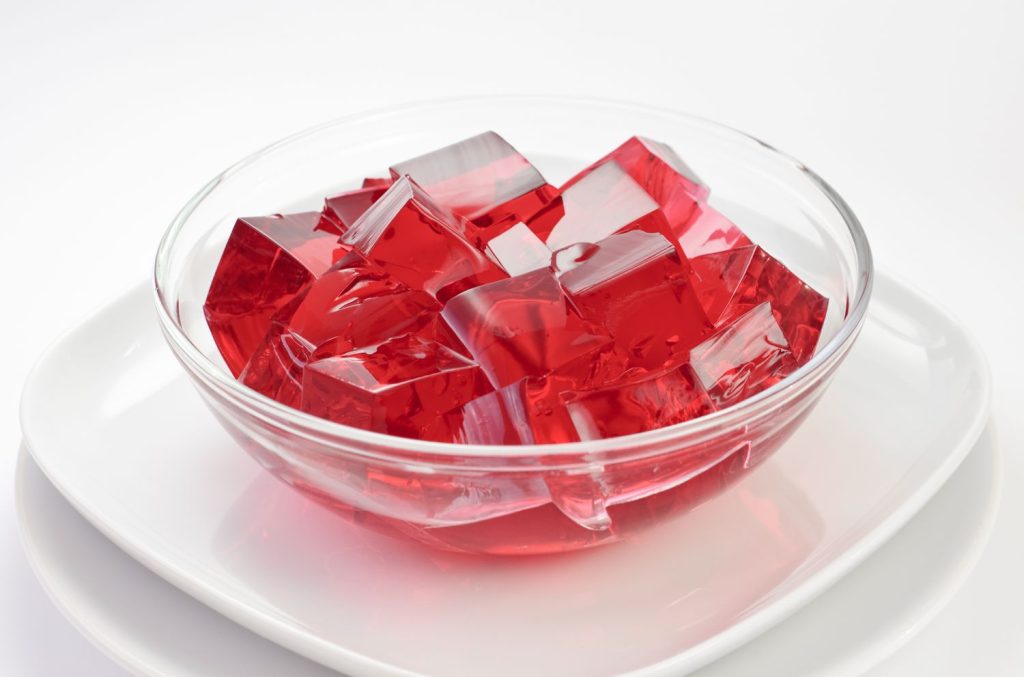
- What gelatin is made of
- Agar and other vegetable alternatives to gelatin
Gelatin is a substance that is present in many products: from foods such as jelly beans, many desserts, sauces … to medicines or even some cosmetics. It is used to thicken the texture or gel.
Many people wonder what gelatin is made of and if there are vegan alternatives that fulfill the same functions. We tell you about it below.
WHAT GELATIN IS MADE OF
Gelatin is a protein-based substance that is derived from collagen found in the skin, bones, tendons, ligaments, and cartilage of animals.
Although many gelatin products at first glance do not seem to be related to animals, you should know that gelatin is made from the connective tissues, bones and skin of animals, especially the skins and bones of cows, pigs and, sometimes, fish.
The process of making gelatin involves boiling these animal tissues with water to extract collagen, which is then hydrolyzed to form a colorless, odorless, tasteless substance with a gel-like texture.
Generally, to make gelatin parts of the cow and pig are used, although it can also be made with fish or poultry. Often, the parts used for the production of gelatine are by-products of the meat and leather industries.
Gelatin is used in various food products (jelly beans, desserts, sauces, soups…), cosmetics and medicines. It serves as a gelling agent, stabilizer and thickener due to its ability to form a gel when mixed with water and then cooled.
The specific animal source varies depending on the manufacturer and the intended use of the gelatine. For example, the gelatins used to make the drugs are usually obtained from cattle bones and pig skin.
AGAR AND OTHER VEGETABLE ALTERNATIVES TO GELATIN
As you can see, gelatin is not vegan or vegetarian at all. Fortunately, there are alternatives that are derived from plant sources and serve the same purposes in the production of food (and other products) and in the preparation of recipes, such as:
- Agar: A natural unflavored gelling agent that is derived from the cell walls of red algae. You can find it in powder, sheets or bars and it dissolves in hot water. It is usually used in the preparation of desserts, jellies or puddings, although you can also use it in savory dishes.
- Carrageenan: is another product derived from algae that is used as a thickener and gelling agent in various food products, especially in vegetable milks, ice cream and desserts.
- Pectin: is a natural carbohydrate found in fruits, particularly apples and citrus fruits. When pectin is heated and mixed with acids and sugars it forms a thick, gel-like substance. It is often used as a thickener and gelling agent in jams, jellies, fruit preserves, vegan gummies and fruit-based desserts.
- Corn starch (cornstarch): it is a fine flour that is obtained from corn starch. When mixed with liquid, it absorbs moisture and expands, creating a thickening effect once heated. It does not serve to make gelatin-type recipes, but it can work as a thickener in creamy desserts, sauces or creams.
- Xanthan gum: is a thickener of plant origin that is produced when Xanthomonas campestris, a strain of bacteria, ferments the sugar of ingredients such as rice or corn. It is used in gluten-free pastries and as a substitute for gelatin to improve the texture of sauces, dressings and ice cream.
- Guar gum: is a thickener of vegetable origin that is derived from the legume Cyamopsis tetragonolobayand is used as a thickener, stabilizer and binder in various food products (baked, milk alternatives, sauces …) as a substitute for gelatin.
- Konjac root: This Asian root is a source of glucomannan, a water-soluble dietary fiber. It is often used as a thickener, gelling agent and binder in vegan cuisine.
- There are also companies that produce vegan gelatin substitutes based on plant ingredients such as tapioca starch or potato starch, among others.
- When buying products that may contain gelatin, it is important to check the ingredient list or look to see if they are vegan or vegetarian certified.

